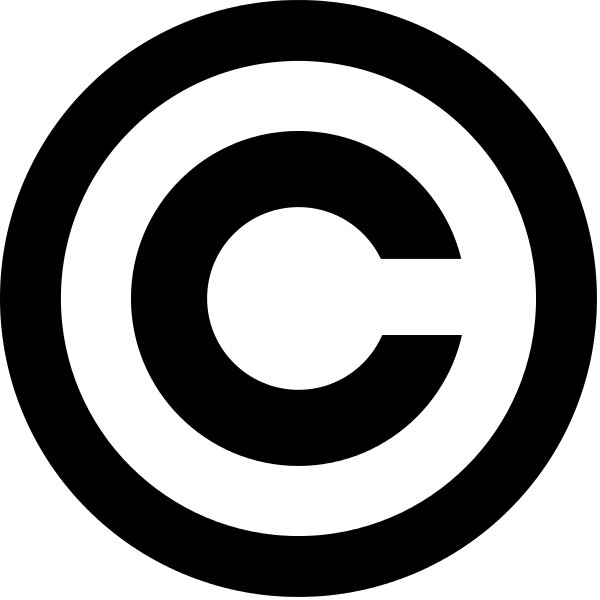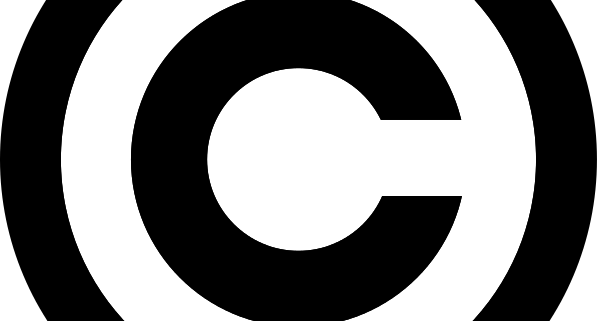What Is A Copyright? And How Do I Get One?
 You’ve been working on your newest song (or book or artwork) for months and now you’re ready to share it with the world. But how do you make sure you get the credit (and the financial benefit) of your work? What’s to stop someone else from claiming your creative work? That’s where copyright protection comes in. So, what’s a copyright?
You’ve been working on your newest song (or book or artwork) for months and now you’re ready to share it with the world. But how do you make sure you get the credit (and the financial benefit) of your work? What’s to stop someone else from claiming your creative work? That’s where copyright protection comes in. So, what’s a copyright?
Copyrights and Intellectual Property Basics
Copyrights are a type of intellectual property. We think of property as physical items that we can possess – and that have monetary value. But ideas can have monetary value, too! Intellectual property law protects those non-physical kinds of property. There are three main types of intellectual property protections: trademarks, parents, and copyrights. Trademarks protect the names, logos, and other identifiable symbols of a brand. Patents protect technological advances. Copyrights protect creative works such as music, artworks, and books.
A copyright gives you the right to control your creative work. You can determine who can reproduce your work, sell it, adapt it, display it, or otherwise use it. You have the right to license other parties to use your works. For example, you can sell a license to a production company allowing them to use your song in their movie.
What Can I Copyright?
The idea behind intellectual property law is to make sure you get the benefit of your ideas. Of course, you can’t simply claim that an idea was yours after someone else uses it – there’s no way to verify that. Under federal law, your work must be “fixed in any tangible medium of expression.” 17 U.S.C. § 102. For example, you must have a recording of a song or movie, written (or digital) text for your book or play, or a physical sculpture. If your work contains multiple types of creative work (like a musical, with music, lyrics, choreography, sets, etc.) then anything you want to copyright has to be recorded in a tangible medium of expression. You can’t copyright an idea. Types of work that may be copyrighted include:
- books, poetry, plays, and other written works
- musical works (including the music itself)
- works of art, including performance art
- theater productions (including accompanying music)
- movies and videos
- video games
- software
- sound recordings
- choreography
- architectural works
In addition to being recorded in some fashion, your work needs to be unique. You can’t copy another person’s work and claim a copyright. That comes up a lot in music, where one artist claims that another used their melody. If a copyrighted work is similar to a lot of other works, it can be tough to enforce a copyright claim. For example, there are a lot of common literary and movie tropes and popular chord progressions in music. It’s hard to argue that those things are your intellectual property unless they’re really unique.
Finally, the work has to be creative. That’s a little bit of a fuzzy area; how much creativity is enough? Writing a train timetable is probably not enough, but maybe using that same train timetable to make a statement as a piece of art may be. You can’t copyright plain facts (even if you did original research to get those facts).
A copyright lawyer can help you determine whether your work qualifies for a copyright.
Getting A Copyright
Technically, you don’t have to do anything at all to get a copyright – your creative work is automatically protected. This is an “unregistered copyright.” However, you’ll have to register your copyright before you can bring a claim against someone using your work. In other words, you don’t have to register your copyright right away; you can register it whenever you need to file a claim.
However, there are major benefits to registering your copyright quickly. If you register within three months or before the start of any copyright infringement, you get a lot more protection. First, that creates a presumption that your copyright is valid. Second, it gives you the right to collect up to $150,000 for a violation, even if there was no monetary harm. In other types of lawsuits, you have to prove that you lost money (or didn’t get money you should have) in order to win money, so that’s a big deal.
Registering your copyright is simple; you can do it online. You’ll need to pick the right kind of form; there are different ones for different types of works. Once you’re registered, you’ll be able to include a copyright notice on your work. That serves a couple of purposes. First, it lets everyone know that your work is copyrighted and makes it easier for people to track you down to ask for licensing. Second, it makes it much easier to enforce your rights – no one will be able to claim that they didn’t know the work was yours. Consider talking to a copyright attorney to make sure that your copyright notice is displayed properly so you get the full benefit.
How Long Does A Copyright Last?
Whether you register your copyright or not, it’s valid for your lifetime plus 70 years. After your death, your heirs get the advantage of your rights. After 70 years, your work will generally become part of the public domain, meaning anyone can use it.
Enforcing Your Copyright
Because of the creative nature of works under copyright, it can be tricky to defend your rights. As we mentioned above, registering promptly and including the copyright notice can make it easier. However, it’s not uncommon for people to have similar ideas and produce similar works. If you’re considering registering for a copyright or you need to enforce your copyright, we can connect you with an experienced local copyright attorney.
Are you in search for a certified attorney to represent you?
Let us help you find one today!



